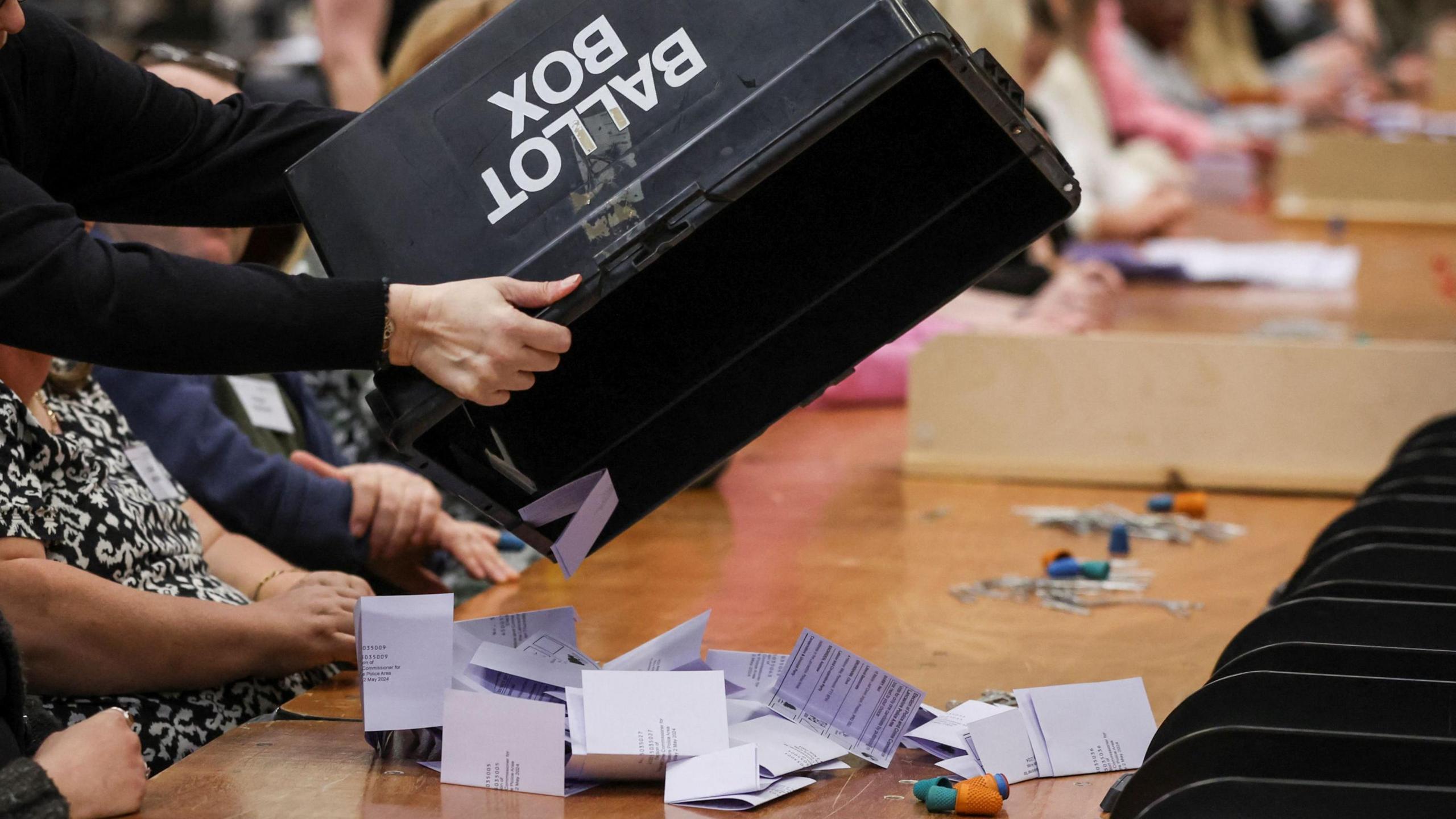What are islanders voting on in the UK election?
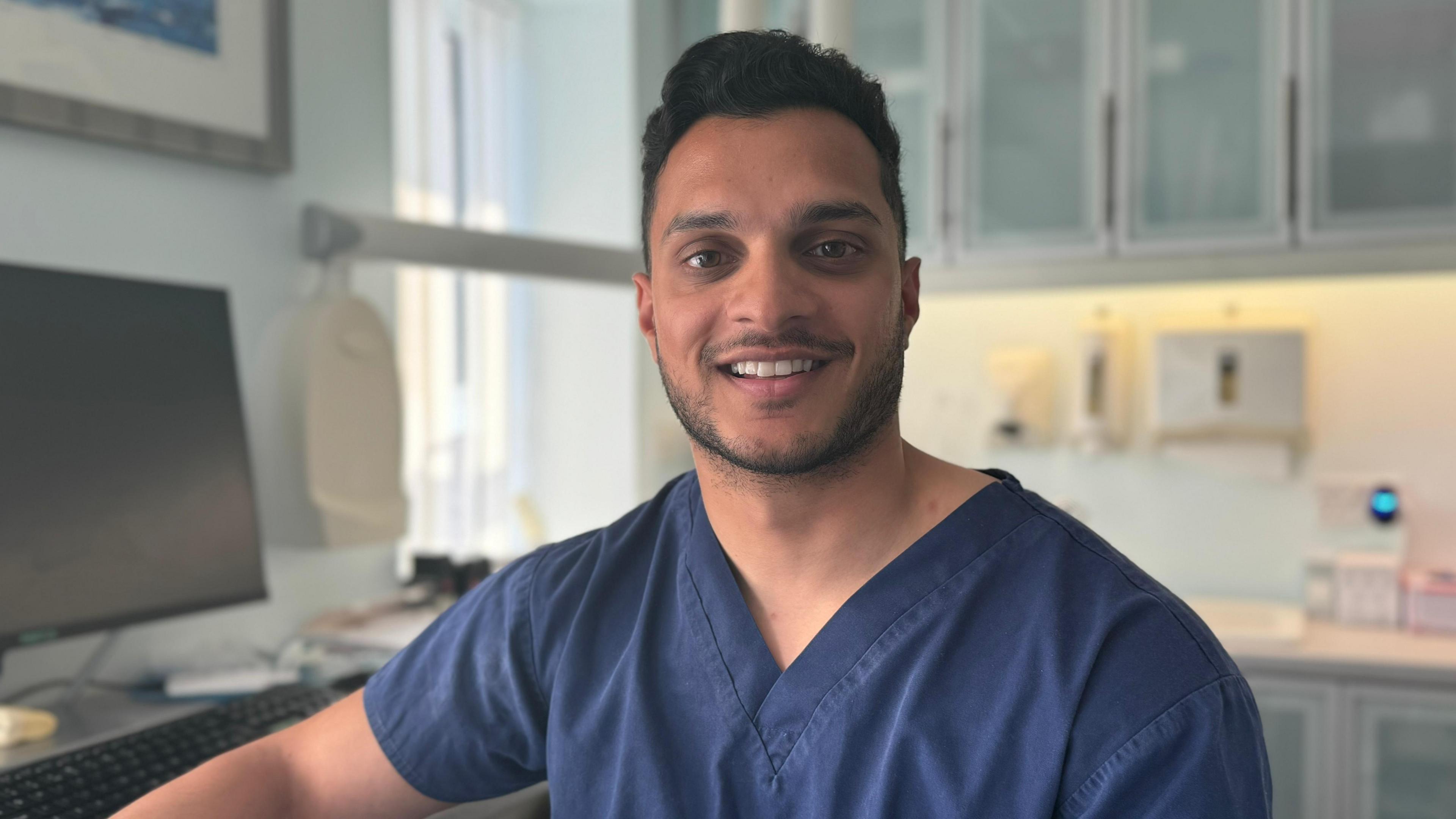
Manthan Patel wants the next government to improve the NHS
- Published
Channel Islanders voting in the UK election have been sharing the issues that will influence their vote.
Islanders who previously lived in the UK can vote in their last constituency they lived in with a postal ballot, proxy vote, or in person by travelling to the UK.
Manthan Patel, 29, moved to Jersey to work as a dentist in 2021.
He said his vote would go to a government that promised to improve England's National Health Service (NHS).
'Failing massively'
Mr Patel said: "I used to work in the NHS and I have a lot of family in the NHS, so a lot of the policies, which the parties are coming out with, and just with what's happened in the past eight to 10 years, the NHS and how it's gone downhill - I would vote for a government which would change that.
"Particularly something that's fair for doctors and also that improves NHS dentistry as well as it's failing massively at the moment."
Mr Patel said he would be voting for the first time.
"A lot of the people in Jersey that have moved over have a lot of friends and family back home and whatever they're voting for now might affect even themselves if they decide to move back to the mainland," he said.
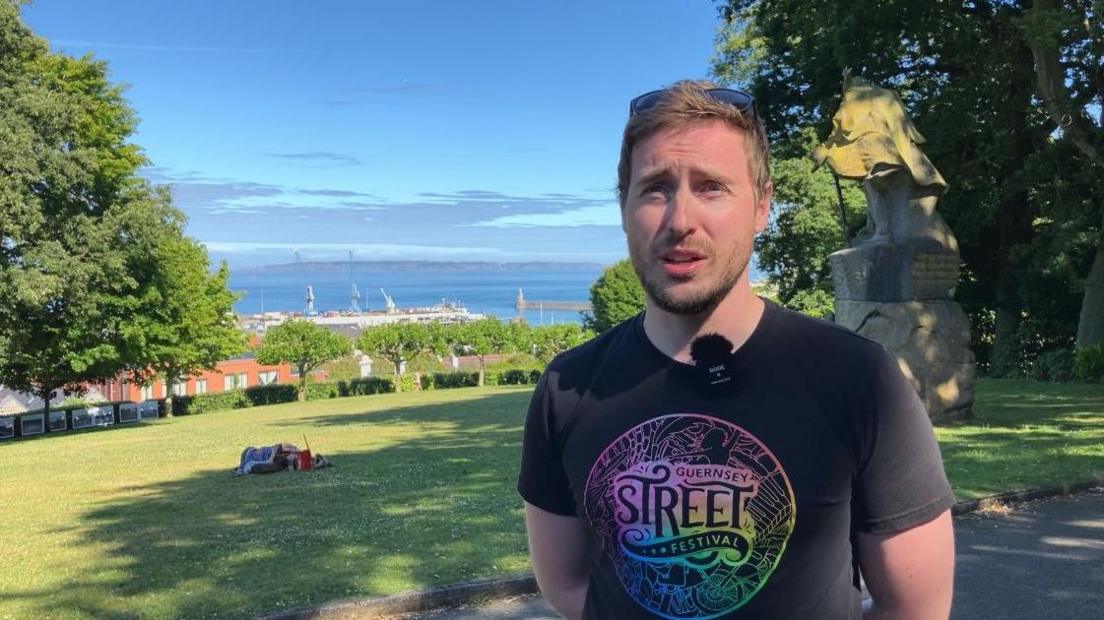
Dave Wheeler said the UK shared issues like "sky high" house prices and rents with the Channel Islands
Dave Wheeler, a content producer living in Guernsey, said he was voting based on UK issues, but some of the issues also affected people in the Channel Islands.
The 36-year-old, who is originally from Hertfordshire, said housing was a big issue in the islands and back home.
Mr Wheeler said: "Prices are sky high, rental costs are insane.
"It's not much of a better situation in the UK and all the major parties are campaigning on those grounds as well."
He said another big concern was healthcare.
Mr Wheeler said: "We all know the sorry state of the NHS at the moment with long waiting lists."
He said people in the Guernsey were "very lucky to be able to often get GP appointment on the same day", despite having to pay for appointments or have insurance.
Mr Wheeler felt Guernsey could benefit from adopting a party system similar to the UK, as long as it did not descend into "bipartisan gridlock".
He said island-wide voting, which can lead to more than 100 candidates on a single ballot paper, means "if you want your vote to be informed, you've got to do a lot of research there in your own time".
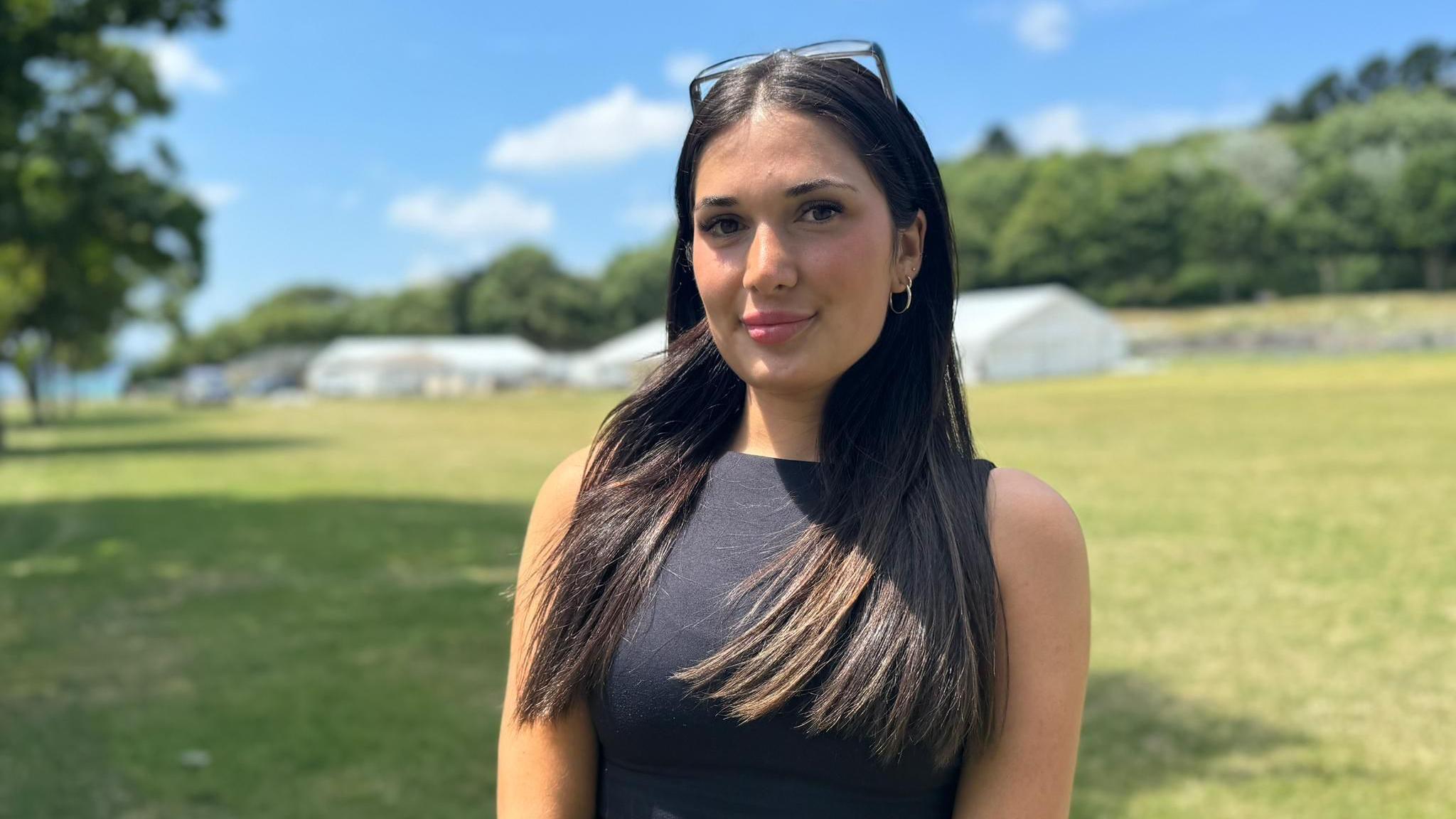
Saskia Veljovic hoped her vote would represent "people my age"
Saskia Veljovic, from Tunbridge Wells, is working in HR in Jersey and it will be her first time voting in a general election.
The 24-year-old, who will be voting by post, said she was voting to better "represent young people".
She said: "Lots of people my age get their news from social media, particularly TikTok, the issue being the algorithm sucks the user into an echo chamber... rather than having a diverse range of opinions to listen to and decide on.
"The political content on social media is often not factual and is based on personal opinion, resulting in young people being uninformed or misinformed based on clickbait information which focusses on single points."
According to an independent British Election Study, external in 2021, about half of 18-24s took part in the 2019 general election compared to more than 80% of over-75s.
Ms Veljovic said other issues that mattered to her included social justice, living conditions and workers rights.
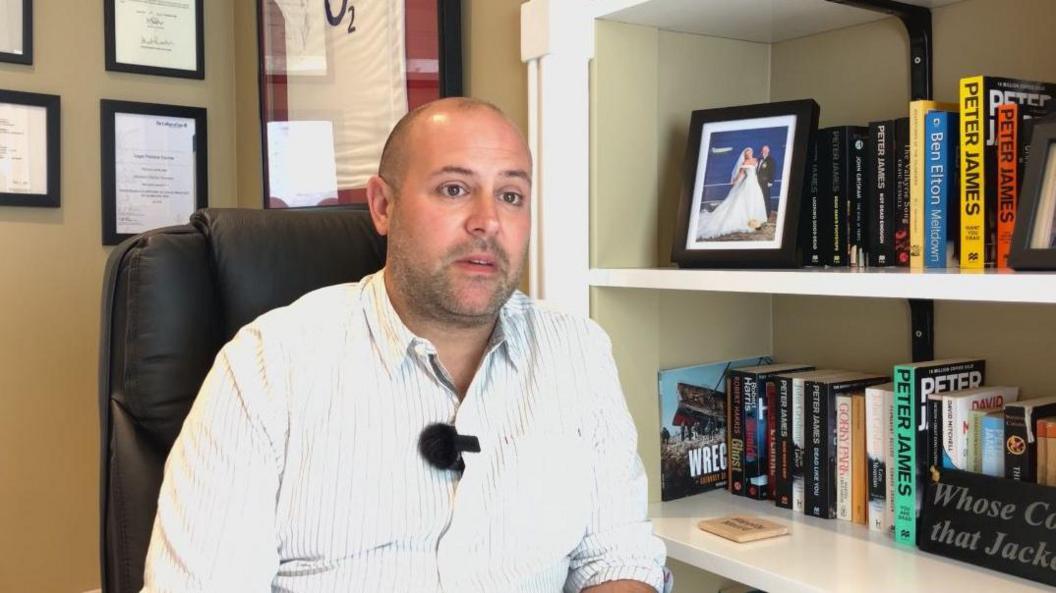
Mathew Newman is "delighted" to be able to continue voting in the UK after living in Guernsey for 16 years
Mathew Newman, 47, moved to Guernsey 16 years ago from Altrincham, near Manchester.
He said he was expecting the 2019 election to be the last time he was allowed to vote, but was "delighted" to be able to vote in this year's election thanks to new rules on overseas voters.
The advocate, a Guernsey lawyer, said he tried to pretend he was "still living in the UK", rather than voting based on the effect of the election on the Channel Islands.
Mr Newman said the issues that mattered to him were "health, education, the usual sort of stuff" as well as the party's overall approach including foreign policy.
Tighter rules
He said: "I'm very interested in the policies that the parties have in relation to the Middle East, for example, at the moment, and what both the Conservatives and Labour would be doing if they get into power on the fourth of July."
Mr Newman said he felt postal ballots gave voters "greater clarity" before voting.
He said: "In the past few times when I've voted via postal vote, you have more time to think about it because you've actually got the piece of paper in front of you."
Mr Newman said he thought the result of the election would have a "quite significant" effect on the Channel Islands as parties look to tighten the rules on non-doms and other aspects of offshore finance.

Trust administrator Andrea Lord will be voting on "issues that affect women and education issues"
Andrea Lord, 52, is a trust administrator who moved to Guernsey in 1996 from Chichester.
She said she will be in the UK on election day, but had "left it to the postal service to make sure it gets there".
Mrs Lord will be voting on "issues that affect women and education issues in the UK".
She said she felt women's rights, such as safe spaces, had dropped down the agenda compared to other issues.
Mrs Lord said: "Women’s rights matter. Inheritance tax issues, education, all things that affect me, my children and my future grandchildren."
She said she felt a "lack of clear cut party politics" in the Channel Islands "make for very blurred lines in terms of policies" compared to the UK, with people voting on small issues or personal friendships.
Mrs Lord said she wasn't sure if she planned to move back to the UK at some stage, but felt strongly that any UK citizen "should be able to vote regardless of residence".
She said: "Our children and grandchildren will be likely to live in the UK for at least a portion of their lives and it is right that we are able to have some small say in the make-up of the government."
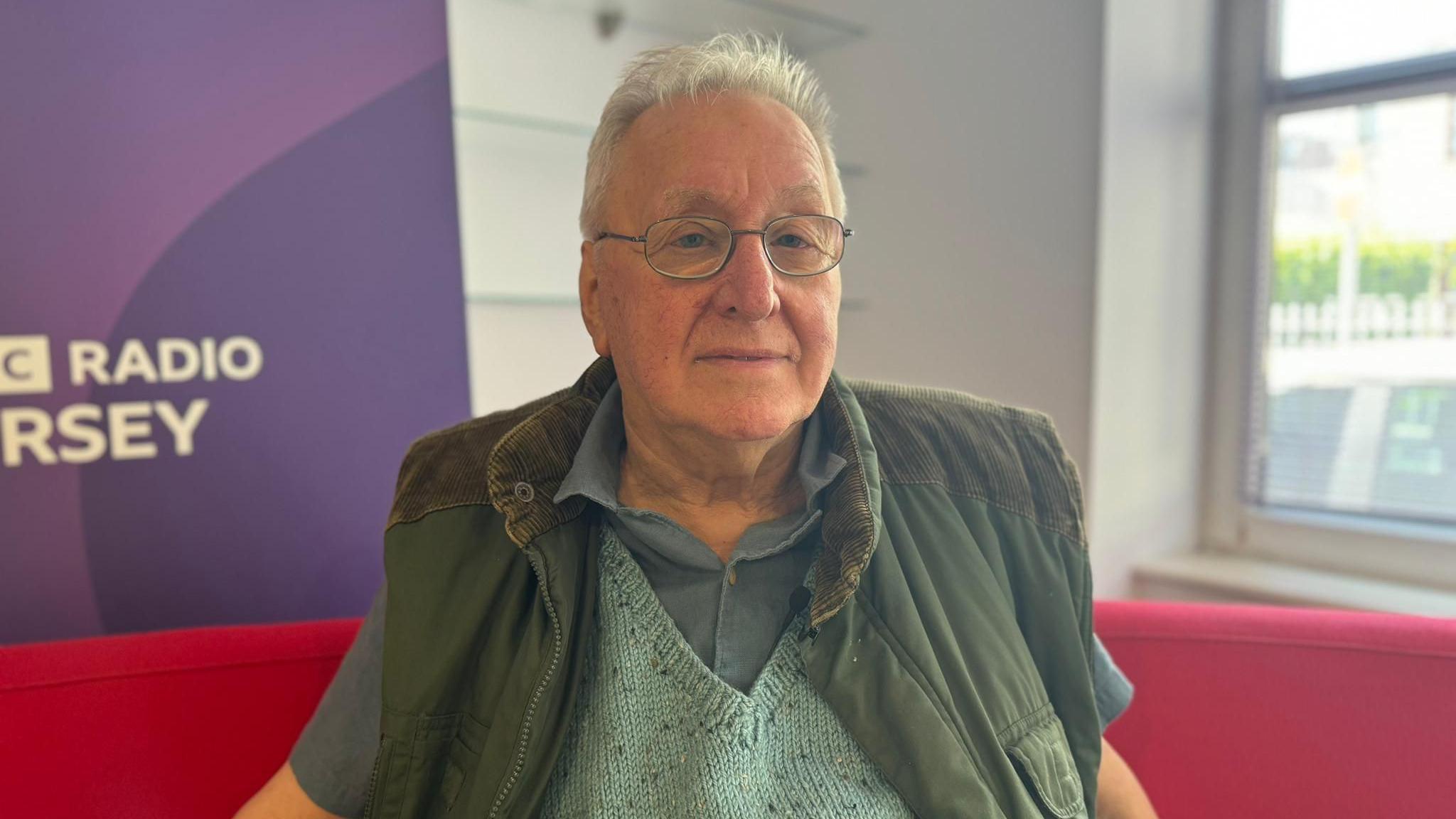
Mike Dunn, who will be voting by postal vote, said people in the Channel Islands should be "paying more awareness" to the election
Mike Dunn, who is retired, came to Jersey in the 1960s.
He said he had petitioned in 1980 for British people in the islands to have a vote in UK elections, but his petition was rejected.
Under the new rules islanders who have lived in the UK, which makes up about a third of the islands' populations, can cast their ballot - previously it was limited to those who had lived in the UK within the past 15 years.
Mr Dunn said people in the Channel Islands "ought to be paying more awareness" to the issues in the UK.
He said: "There are lots of international issues that hit on little Jersey - Jersey unfortunately wants to play the international game as far as finance is concerned, bringing the money in, but it doesn't want to play the international game letting the money go out."

Follow BBC Guernsey on X (formerly Twitter), external and Facebook, external. Follow BBC Jersey on X (formerly Twitter), external and Facebook, external. Send your story ideas to channel.islands@bbc.co.uk, external.
- Published8 June 2024
